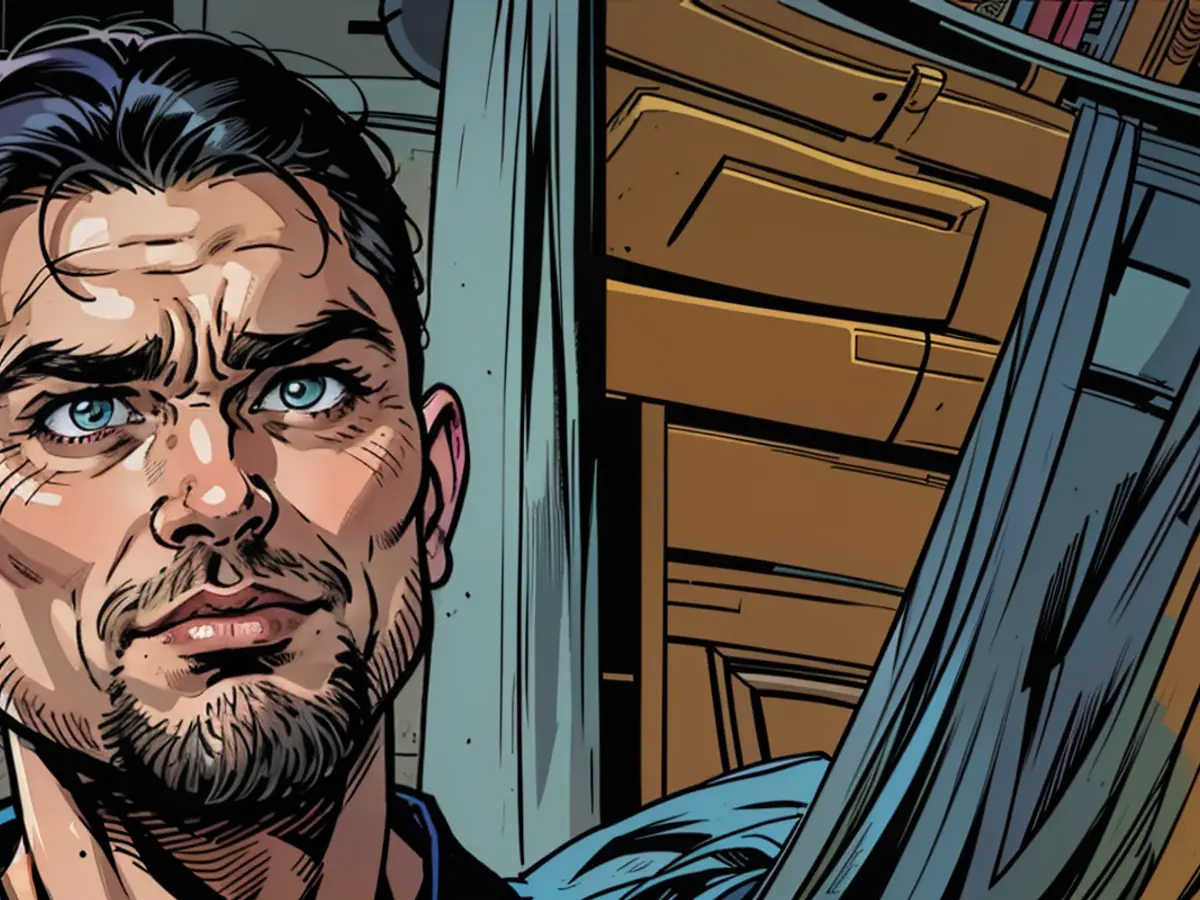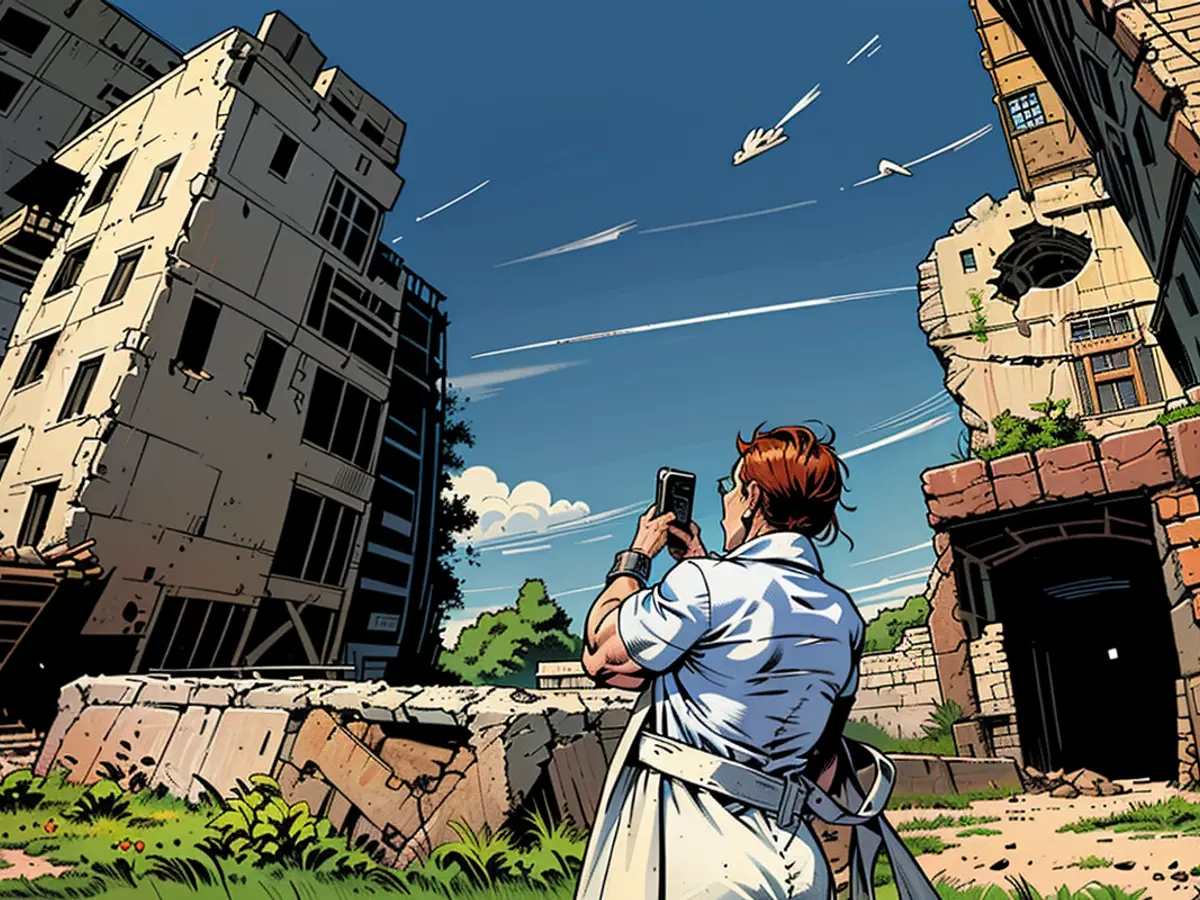Increasing appetite for war-related travel experiences is observed.
Ukraine is synonymous with conflict and human distress, yet defying the norm, Dmytro Nikiforov offers guided excursions through former battlegrounds. He maintains his project is purely business-driven, yet yearns to "illuminate the world about the war."
ntv.de: So, you're actually a legal professional by trade. Now you're escorting tourists through areas where Ukrainians squared off against the Russians and Putin's troops committed atrocities. How did this idea materialize?
Dmytro Nikiforov: I'm one of the co-founders of a law firm. In the initial months post-conflict, our entire energy was invested in assisting military units in Kyiv and surrounding regions, including connecting international visitors with Ukrainian locals. In August 2022, a Polish individual seeking to film a brief documentary requested my accompaniment. Following those three days, I fathomed that such tours could serve to highlight the war globally.
How did the project come about?
That marked the genesis of "War Tours." Not only journalists started reaching out to us, but also individuals eager to witness firsthand the consequences of the war. We recognized the potential of leveraging tourism to showcase the ongoing need for international military aid for Ukraine.
What specifically do you showcase and what responses do visitors yield?
"War Tours" offers a glimpse into the brutal essence of war. Visitors bear witness to the devastating destruction of residences, infrastructure, and military apparatus, engage with eyewitnesses and refugees, and even traverse areas marred by Russian aggression. Guests leave moved and in awe of Ukraine's resilience, often sharing their experiences and sentiments on social media – the primary aim of the project: to perpetually remind the world of the conflict.
Are you the sole organization providing tours in war-torn locations or do you face competition?
We've observed an escalating interest in war tourism. It's plausible that other providers may exist in distinct regions of Ukraine, of which I am unaware. Independent tour guides or local organizers might also be offering such tours. Recently, a friend in Kharkiv welcomed an American tourist, subsequently expressing interest in providing similar services.
Who are your clientele and what fees do customers pay?
Numerous book our services for professional purposes: journalists, aid workers, filmmakers. However, we're witnessing a growing body of recreational tourists as well. Most fall between 25 and 35 years old, hailing from countries such as Britain, the US, Italy, and even China and Malaysia. Tours range from $150 per participant in Kyiv to $250 in the broader region, incorporating Bucha and Irpin.
Are there any statistics or estimates determining the influx of tourists into the country since the Russian invasion, for instance, last year?
No. Determining tourist traffic during the conflict is elusive, if not impossible. Although there's a perceptible increase in tourism, particularly in regions unaffected by the war, overall numbers remain significantly below pre-war levels.
Beyond professional reasons, the appeal lies mostly in historical curiosity. Younger audiences seek to grasp the scenarios affecting Ukraine. Tours to contested areas mirror concentration camp pilgrimages, demonstrating the importance of combating fascism, as well as expressing solidarity with Ukraine. Undoubtedly, the adventurous impulse plays a role as well.
Rockets can descend at any hour, anywhere in Ukraine. Can you assure the safety of tourists, or is there always a risk?
There is always a risk. However, anyone entering Ukraine is cognizant of the danger. Tourists accept the risk in exchange for insights and experiences. We take every precaution, knowing the closest shelter, and can rapidly evacuate victims in case of an air alert. We're considering offering insurance to our customers, yet locating a willing provider is challenging.
Those who insinuate you profit from the horrors of war regretfully misconstrue your objectives.
I acknowledge the perspective of such individuals. The commercial aspect takes a secondary role – I'd prioritize advertising and hire additional personnel if it did. However, I shun such expansion. I'm capably assisted by tour guides, translators, and drivers – each striving to make ends meet in trying times. A portion of tour earnings directly supports the Ukrainian military, thereby investing in a peaceful Ukrainian future.
Post-conflict, would you revert to practicing law or persist within the tourism sector?
I've continued to practice law since the conflict began. My firm represents foreign businesses operating in Ukraine. It's gratifying when we receive requests from foreign companies eager to establish a foothold in Ukraine, despite the ongoing conflict. When potential investors visit Kyiv, I personally accompany them on the same tours we offer to tourists. This joint endeavor mirrors my genuine passion for conveying Ukraine's situation.
My family, including my parents and my brother's family, lost their home in Oleshky near Kherson, forced to flee due to Russian occupation. This personal experience motivates my unwavering commitment to showcasing the war's ongoing impact.
In the event of peace, what aspects of the new normal are you most eager to welcome?
As a kid, history always fascinated me. Diving into historical books, I discovered that the Russians have held a hostile stance towards the Ukrainians for generations and even went as far as executing a genocide against us during the 1930s. And here we are, dealing with the same issues once more. I'm aware of history's repetitive nature, and if peace prevails, it will be short-lived. People need to grasp the fact that for the Russian president to maintain his grip on power, he needs an external adversary. Without a doubt, the orcs will persist in their aggressions, which will mostly impact the Baltic countries. Regrettably, I can't help but foresee a lack of peace in the coming years.
Interview with Dmytro Nikiforov by Thomas Schmoll
What prompted Dmytro Nikiforov to start offering guided excursions through war-torn areas in Ukraine was a request from a Polish individual seeking to film a documentary. After accompanying the individual for three days, Nikiforov realized that such tours could help raise global awareness about the war in Ukraine.
Despite the risks involved, Dmytro Nikiforov insists that he and his clients accept the danger in exchange for the insights and experiences they gain from visiting war-torn areas in Ukraine. He explains that tourists are cognizant of the risk and are willing to accept it, as they are driven by historical curiosity, the desire to express solidarity with Ukraine, or simply an adventurous impulse.









